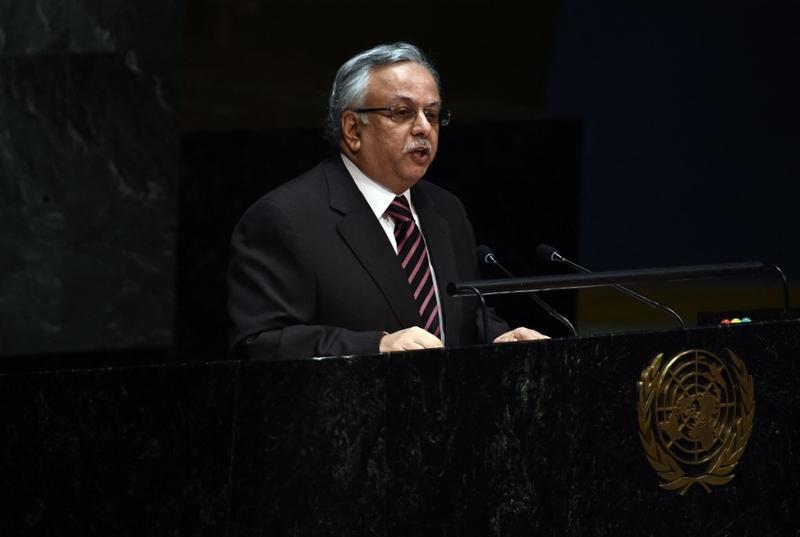 Saudi Arabia's permanent representative to the United Nations Abdallah Al-Mouallimi speaks at the UN headquarters in New York on Jan 22, 2015 during an informal meeting of the plenary of the General Assembly to address concerns of a rise in anti-Semitic violence worldwide. (JEWEL SAMAD / AFP)
Saudi Arabia's permanent representative to the United Nations Abdallah Al-Mouallimi speaks at the UN headquarters in New York on Jan 22, 2015 during an informal meeting of the plenary of the General Assembly to address concerns of a rise in anti-Semitic violence worldwide. (JEWEL SAMAD / AFP)
DUBAI - Saudi Arabia's envoy to the United Nations said the kingdom wanted more substantive talks with Iran but that Tehran was so far biding its time and playing "games" in the discussions.
Saudi Arabia and Iran, the region's Sunni Muslim and Shi'ite powerhouses, launched direct talks this year at a time global powers are trying to salvage a nuclear pact with Tehran and as UN-led efforts to end the Yemen war stall.
Saudi Arabia, which cut ties with Tehran in 2016, has described the talks as cordial but exploratory, while an Iranian official in October said they had gone a "good distance"
The kingdom, which cut ties with Tehran in 2016, has described the talks as cordial but exploratory, while an Iranian official in October said they had gone a "good distance".
Riyadh's UN envoy Abdallah Al-Mouallimi told Saudi newspaper Arab News in a video interview published on Monday that no major results had been achieved.
"We would like to push these discussions towards substantive issues that involve the behavior of the Iranian government in the region," Mouallimi said.
ALSO READ: Saudi coalition bombs Sanaa in tit-for-tat violence with Houthis
"But as long as the Iranians continue to play games with these talks they are not going to go anywhere," he said. "The Iranians take a long-term attitude towards these talks. We are not interested in talks for the sake of talks."
Tensions between the two foes spiked in 2019 after an assault on Saudi oil plants that Riyadh blamed on Iran, a charge Tehran denies, and continue to simmer over Yemen where a Saudi-led coalition is battling the Iran-aligned Houthi group.
READ MORE: Saudi-led coalition warns Houthis using bomb-laden boats
"It (Yemen) has proved to be intractable simply because the Houthis continue to receive a continuous supply of weapons and ammunition from their benefactors, particularly Iran," Mouallimi said, reiterating a charge that both Iran and the group reject.
The conflict is widely seen as a proxy war between Riyadh and Tehran, which are vying for influence across the region.


